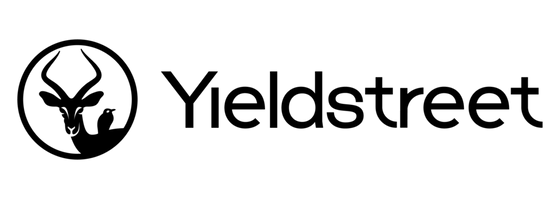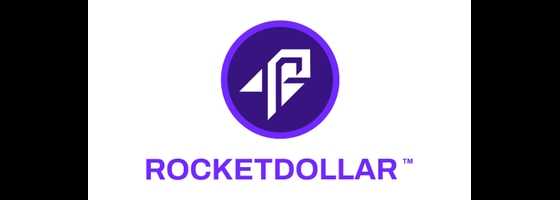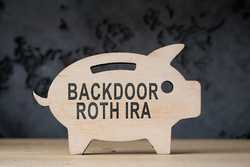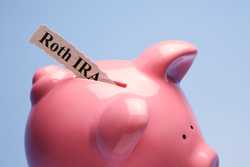8 Alternative Investments to Diversify Your Portfolio in 2024

Our evaluations and opinions are not influenced by our advertising relationships, but we may earn a commission from our partners’ links. This content is created by TIME Stamped, under TIME’s direction and produced in accordance with TIME’s editorial guidelines and overseen by TIME’s editorial staff. Learn more about it.
Most investors build their portfolios by investing in traditional investments, such as stocks, bonds, and cash. These can provide both growth and a level of diversification. However, some investors seek diversification beyond these traditional asset classes.
Such investors often look to alternative investments as a way to diversify beyond stocks, bonds, and cash. Rather than being a single asset class, alternatives span a number of asset classes. Many alternative investments offer a relatively low correlation to stocks and bonds (meaning that their financial performance is dissimilar to that of stocks and bonds), making them a good portfolio diversification tool.
Alternative investments are those that do not fall into the traditional categories of stocks, bonds, and cash. Some examples include private equity, venture capital, hedge funds, managed futures and commodities, art and collectibles, derivatives, and real estate.
One key advantage of alternative investments is that most types of alternatives have a relatively low correlation to more-traditional asset classes, such as stocks and bonds. For example, here is the correlation of several alternative investments to large cap stocks (found on page 54 of JP Morgan’s Guide to the Markets).
On the other hand, direct investment in some types of alternative investments may come with limited liquidity, meaning they cannot be converted to cash as quickly as investments such as stocks, mutual funds, and exchange-traded funds (ETFs). This is true of direct investments in real estate, artwork, and private debt, among others.Here are eight alternative investments to consider for diversifying your portfolio.
The first thing to focus on is fully understanding how each of these alternative investments works. Then you need to consider how these investments might fit with other holdings in your portfolio, and any tax or liquidity issues that might arise from investing in a particular alternative.
Real estate is perhaps the most well-known alternative investment. Investing in real estate can provide ongoing cash flow and the potential for appreciation. Real estate generally has a low correlation to traditional investments such as stocks and bonds. Real estate investing can be done in several formats.
Realty Mogul is a platform that offers access to REITs and other types of real estate investments.
Fine art and collectibles is a broad category in which assets can be hard to value. Items here can range from a piece of artwork, such as a painting or sculpture, to a valuable sports card or other memorabilia. These items are valued based on market demand and what someone will pay for them.
Typically, fine art and collectibles have been reserved for wealthy investors, but platforms such as Masterworks provide access to art for smaller investors as well. Masterworks allows investors to buy shares in high-value art and collectibles. Besides making this type of investment more affordable, the platform allows investors to buy and sell shares in selected pieces of art, providing a level of liquidity generally not available when investing in fine art and collectibles.
The category of precious metals includes gold, silver, platinum, and others. Precious metals have a low correlation to more traditional investments and have been traditional stores of value.
Gold and other precious metals can be purchased as coins or bullion, usually in the form of bars. In the case of bullion you will want to be sure to purchase the metal through a reputable dealer, who can generally also offer a storage option for your investment.
Rocket Dollar can be a good platform for those who want to hold gold or other precious metals inside of an individual retirement account (IRA) or other type of retirement account. There are very specific rules regarding the holding of precious metals in an IRA, and Rocket Dollar can help ensure that you don’t violate these rules and subject yourself to the tax consequences of doing so. One such general rule is that gold coins cannot be held in an IRA account, with certain exceptions. Rocket Dollar offers a full range of options relating to self-directed IRAs and other self-directed retirement accounts.
Besides a direct investment in gold or other precious metals, there are ETFs that track these metals, such as SPDR Gold Shares (ticker GLD) and iShares Silver Trust (ticker SLV). These ETFs seek to track the performance of the metals, but their performance may also be influenced by other market factors.
There are a number of different types of commodities, including various types of agricultural crops, such as wheat and corn; livestock; energy, such as oil and gas; precious metals; and others. Gold and silver, especially among precious metals, are often used as raw materials in various types of industrial products. In some cases investors may be able to purchase certain commodities directly or as part of a fund.
Commodities are often traded as futures contracts. Futures are essentially a bet on the future direction of the underlying commodity. In addition to investors, the futures market for commodities serves as a hedge for agricultural producers and others to attempt to mitigate the impact of a price change of the underlying commodity on their business.
Commodity ETFs and mutual funds are a way for investors to participate in commodity investing without buying and selling futures.
Investing in debt is a way for investors to buy a stream of payments over time and then receive the face value of the loan upon its due date. There are several forms of debt investing, including:
There are a variety of cryptocurrencies available to investors. Bitcoin is perhaps the most well known. Cryptocurrencies are based on a blockchain platform and take the form of digital tokens.
Cryptocurrencies were originally devised to be a store of value, much like precious metals such as gold and silver. Of late they have been very volatile, with some extreme price movements in some cases. They are still evolving, and while they sometimes offer solid returns, they also carry considerable risk.
Crowdfunding is an increasingly popular way for entrepreneurs and start-up businesses to raise much-needed capital for their businesses. In the past only accredited investors could invest in private equity through crowdfunding, but new rules in recent years have opened this type of investment to nonaccredited investors as well.
A crowdfunding platform is essentially a fund that allows investors to invest in a share of several ventures being funded by the platform. This lets investors put relatively small amounts into the platform while gaining the advantage of investing in a number of different entities.
Besides business funding, creatives such as artists, writers, and musicians may also raise money through crowdfunding. Additionally, crowdfunding platforms can provide investors with access to a number of investments in a range of asset classes, including real estate, consumer and corporate debt, private stock, promissory notes, and more.
Private equity investments have shares that are not publicly traded.These investments might consist of:
Private equity is generally not subject to the effects of movement in the stock market, but these shares may be less liquid than publicly traded shares. Private equity can offer a significant upside in some cases, and if the company does eventually go public, there can be an even greater upside potential.
Yieldstreet offers access to a wide range of private equity investments as well as a variety of other types of alternative investments.
Alternative investments can be a solid way to diversify your portfolio. They generally have a relatively low correlation to more-traditional investments, such as stocks and bonds. They can potentially mitigate your overall investing risk.
Some investors might consider holding alternatives in a self-directed retirement account, such as a self-directed IRA, self-directed SEP-IRA, or self-directed solo 401(k).
In today’s investing world there are options other than direct purchase for benefiting from many types of alternatives. These include mutual funds and ETFs, which invest in various types of alternatives. There are also several investing platforms that are geared toward smaller investors.
It varies. What works for you will depend on factors such as your objectives and comfort level with certain types of investments. You will want to be sure that the investments being considered have a relatively low correlation to stocks, as this is generally one of the key benefits of investing in alternatives.
Beyond diversification, when looking at an alternative investment, be sure to do your due diligence and homework on both the type of alternative in general and the specific form of that investment you may be considering.
For most investors this is a highly irrelevant question. The “top” sector is the sector that fits their investing objectives. Investing is an individualized endeavor, and it’s important to remember that what is right for another investor may not be right for your investment portfolio.
While the financial media can be an excellent source of investing information and even investing ideas, at the end of the day what is considered to be a top or popular sector in general is not always relevant to your individual situation. The eight sectors discussed here are good places to start.
Few investments do not have a risk of losing money. Cash, including money market funds, is generally considered to be a place where investors will not lose money. Even there, however, inflation can reduce its buying power.
Treasury securities are considered to be riskless in terms of default, but Treasuries can lose money during an investor’s holding period if they try to sell the security before maturity. If they do so and interest rates have increased since the time the investor bought the Treasuries, the notes will likely be worth less than the investor paid for them.
The information presented here is created by TIME Stamped and overseen by TIME editorial staff. To learn more, see our About Us page.






